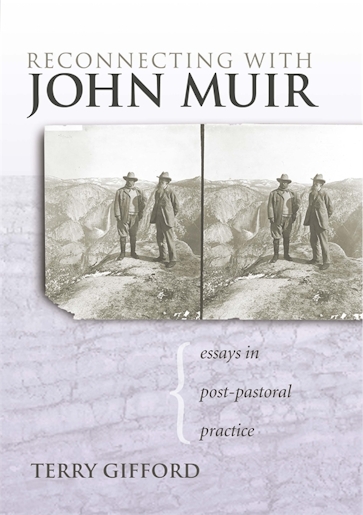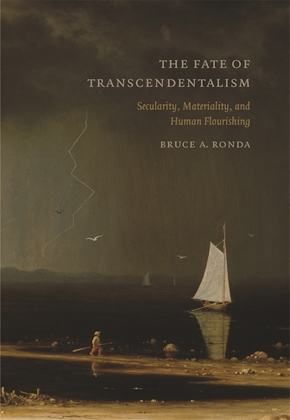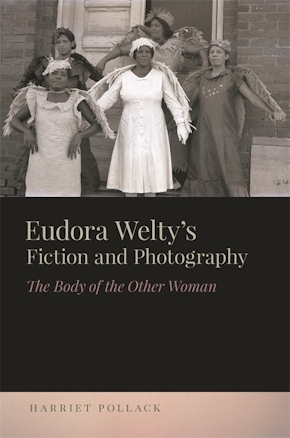Reconnecting with John Muir
Essays in Post-Pastoral Practice
Title Details
Pages: 216
Trim size: 6.000in x 9.000in
Formats
Hardcover
Pub Date: 04/25/2006
ISBN: 9-780-8203-2796-9
List Price: $48.95
Related Subjects
Reconnecting with John Muir
Essays in Post-Pastoral Practice
Skip to
- Description
- Reviews
- Awards
Advancing for the first time the concept of "post-pastoral practice," Reconnecting with John Muir springs from Terry Gifford's understanding of the great naturalist as an exemplar of integrated, environmentally conscious knowing and writing. Just as the discourses of science and the arts were closer in Muir's day—in part, arguably, because of Muir—it is time we learned from ecology to recognize how integrated our own lives are as readers, students, scholars, teachers, and writers.
When we defy the institutional separations, purposely straying from narrow career tracks, the activities of reading, scholarship, teaching, and writing can inform each other in a holistic "post-pastoral" professional practice. Healing the separations of culture and nature represents the next way forward from the current crossroads in the now established field of ecocriticism.
The mountain environment provides a common ground for the diverse modes of engagement and mediation Gifford discusses. By attempting to understand the meaning of Muir's assertion that "going to the mountains is going home," Gifford points us toward a practice of integrated reading, scholarship, teaching, and writing that is adequate to our environmental crisis.
Reconnecting with John Muir is a fascinating look at the discourses of environment from the perspective of a British teacher, critic, mountaineer, and poet. Terry Gifford's Muir is more interesting and varied than the Muir Americans have been creating: Gifford's Muir is a Scot, writing in the context of a British tradition of aesthetics and mountaineering.
—Michael P. Cohen, author of The Pathless Way: John Muir and American Wilderness
This timely, wise, consistently insightful book by one of Britain's leading ecocritics is an indispensable study of John Muir, but also much more than that. It unfolds more fully than ever before Gifford's important theory of the 'post-pastoral,' perceptively engaging a wide range of environmental writers. The form of the book's argument is itself highly instructive. Gifford offers a strongly argued assessment and example of the principles of what has come to be called 'narrative scholarship,' the interweave of creative practice, critical writing, pedagogy, and in-field experience that characterizes some of the most innovative work in the field today. Gifford's transatlantic perspective is additionally illuminating. Altogether, anyone with a serious interest in the fast-burgeoning and now-worldwide 'green' turn in literary studies, and in why it is much more consequential than a mere school of literary criticism, will find much to admire in Gifford's penetrating, wide-ranging, but highly accessible account.
—Lawrence Buell, author of The Future of Environmental Criticism
Who better than Terry Gifford to help us reconnect with John Muir? Like Muir, he is a mountaineer, an ardent environmentalist, a lover of the natural landscape, and a venturesome writer—a nature poet. His laudable ambition, in Reconnecting with John Muir, is to define and exemplify the new mode—he calls it 'post-pastoral'—that is emerging at the confluence of two sets of venerable literary conventions: those of nature writing and the pastoral. My favorite example of what Gifford calls 'post-pastoral practice' is his own imaginative, down-to-earth chapter on teaching literature in the service of environmental awareness. It is filled with wonderfully fresh, practical ideas about helping students connect their literary and firsthand experience of the natural world.
—Leo Marx, Professor Emeritus of Science and Technology at MIT
This book is a revolutionary effort to reimagine scholarly practice and the intellectual fruit of that toil. . . . Reconnecting with John Muir offers professors a new and empowering way to think about our multiple roles. What's distinctive here is Gifford's celebration of the multiplicity scholars generally experience as a dissonant avalanche of competing obligations, but that they could live as a unifying ecosystem of opportunities. Like Muir's own Yosemite, readers can visit this book for many reasons and, whether on a short visit or a full expedition, come away enlightened.
—Western American Literature
Insightful . . . . What I find deeply satisfying about this book is the way it brings all parts of a life into play. It advocates the breaching of boundaries that have been constructed and policed between disciplines, showing how to join up and draw on our many-sidedness.
—Green Letters
Runner-up
Banff Mountain Book Competition, Banff Centre



